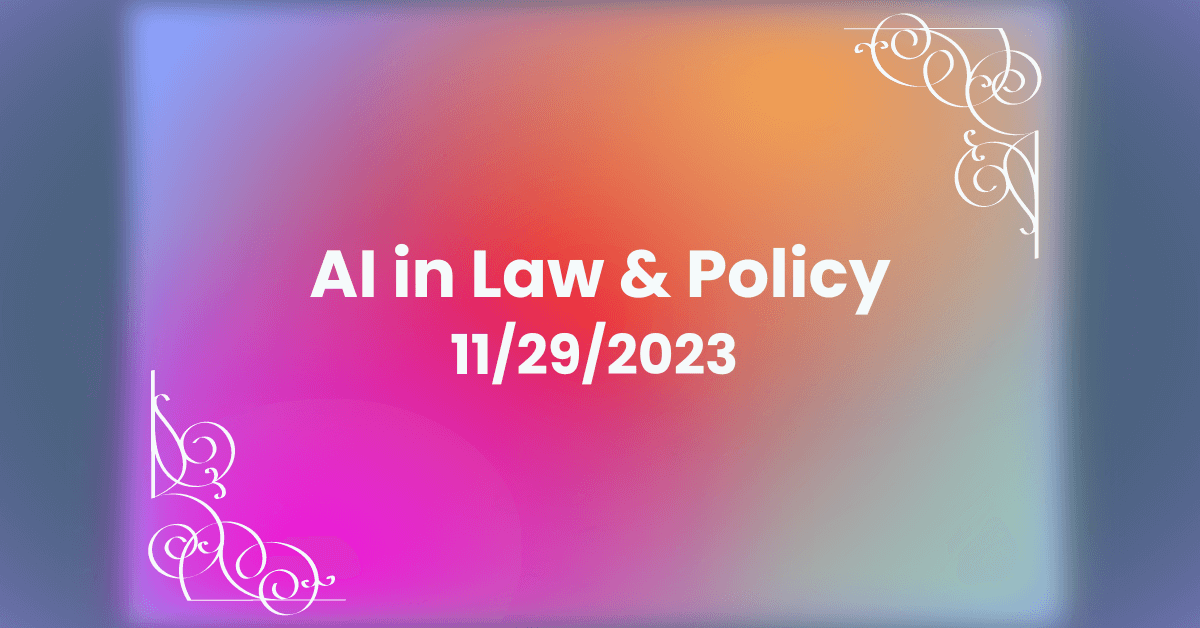AI in Law and Policy – November 29, 2023
When we talk about the legal ramifications of AI, we’re often talking about only a few legal theories affecting a small population. Namely, we’re talking about copyright protection and infringement, and we’re talking about creatives. In large part this is a function of time: We are now concerned with how LLMs are trained, and that involves gobbling up huge volumes of data, some of which are copyrighted. Authors and artists shocked to find their creative works regurgitated wholesale by an LLM represent a cross-section of people both harmed by data training and also wealthy enough to act, and infringement and related claims result. Most of the current litigation against AI companies reflect the author’s effort to protect their monopoly, including yet another lawsuit from October 18, Reuters reports.
However, it’s not unreasonable to imagine a future in which regulatory frameworks, contracts, and greater sophistication in the way companies train LLMs could moot these concerns and bring an end to this kind of litigation (concerns that such a change could serve to entrench deep-pocketed tech giants notwithstanding–concerns recently raised disingenuously by Microsoft and Meta née Facebook before the UK House of Lords, per The Register). We have recently witnessed hints of how this could take shape in the tentative agreements between actors’, writers’, and directors’ unions and the AMPTP, all of which attempt to protect the intellectual property rights in a creator’s work and likeness.
In a most excellent piece for Wired, Alex Winter suggests that while these agreements may protect the striking union workers, they fail to account for many of the more pernicious consequences of AI–problems like systemic bias against vulnerable and marginalized populations who lack the means to litigate. Further, protection for copyright holders is absolutely not the same thing as protection for creatives, since copyright, by design, is transferable, and anything you can sell you can be pressured into selling cheap.







